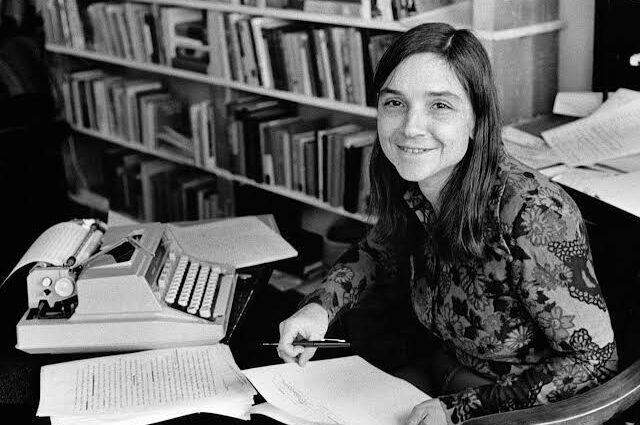Adrienne Rich (1929–2012) was an influential American poet, essayist, and feminist theorist whose work profoundly shaped 20th-century literature and social thought. Born in Baltimore, Maryland, she was a precocious student and published her first collection, A Change of World (1951), while still in college. Initially praised for her formal style, Rich’s writing evolved dramatically in the 1960s and 70s as she became increasingly engaged with feminist, civil rights, and anti-war movements.
Her poetry and essays confront themes of identity, gender, power, and the personal as political. Collections such as Diving into the Wreck (1973) and The Dream of a Common Language (1978) exemplify her mature style—lyrical, unflinching, and politically engaged. Rich explored the constraints placed on women by patriarchy and asserted the need for women to reclaim their voices and histories. She also came out as a lesbian during this period, which further shaped her political and poetic vision.
A powerful voice for social justice, Rich refused the National Medal of Arts in 1997, protesting what she saw as the American government’s indifference to the arts and social welfare. Her essays, particularly Of Woman Born (1976), remain foundational texts in feminist thought.
Rich’s work is known for blending intellectual rigor with emotional intensity, making her both a literary and political force. She challenged traditional structures of language and society, inspiring generations of readers and writers to view poetry as a tool for transformation and resistance. Her legacy continues to resonate in contemporary feminist and queer discourses.


